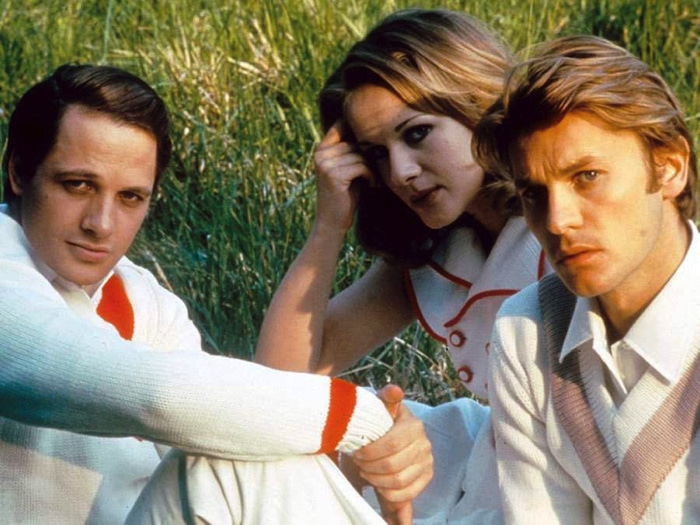
Dir.: Vittorio De Sica; Cast: Dominque Sanda, Lino Capollicchio, Fabrio Testi, Romolo Valli, Helmut Berger, Camillo Cesarei; Italy/West Germany 1970, 74 min.
The Garden of the Finzi-Contini won director Vittorio De Sica (1901-1974) his third Oscar (after Ladri di Biciclette and Ieri Oggi Domani), as well as ‘Golden Bear’ at the Berlin Film Festival. Based on the novel by Giorgio Bassani (who later tried to distance himself from the feature) and written by Ugo Pirro and Vittorio Bonicelli – as well as the uncredited De Sica regulars Cesare Zavattini and Valerio Zurlini – is one of the the very few Italian films shedding light on the murder of Italian Jews by the Fascists. The general consensus was/is that Germany was uniquely responsible for the genocide of the Holocaust.
Set in Ferrara between 1938 and 1943 (with flash-backs to 1920s) the narrative centres around the relationship between Micol Finzi-Contini (Sanda) and Giorgio (Capollicchio) who are in their early twenties. The couple are chalk and cheese, their only common bond is their Jewishness. Micol comes from one of Emilia Romagna’s most distinguished families and lives like a princess, ferried around in a carriage to and from her lush country villa, surrounded by its huge titular garden. Her old school crush Giorgio, meanwhile, is unhappily stuck with his middle-class family.
At the time, Jews are banned from places of public entertainment and the Finzi-Contini’s are no exception – so the capo di famiglia, Professor Ermano, has provided his family with a tennis court, where le tout Ferrara comes to play. Micol flirts with hunky Gianpiero Malnate (Testi), even though he is a gentile and, ‘even worse’, a socialist. Poor Giorgio suffers in silence, watching the lovers until his worst suspicions come true, Micol leaving nothing to the imagination.
Giorgio is so upset he confides in his father (Valli), although blaming him guilty for bribing the authorities with donations. No such compromises in the Finzi-Contini household where Micol proudly points to an old tree, remarking to Giorgio that it might have been planted by Lucrezia Borgia. The Finzi Continis see themselves as part of a ruling class going back centuries – their Jewishness is just a side issue. Giorgio’s father tells his son “they are not really Jewish”. But most of them will meet on their way to the death camps, with Giorgio’s father telling Micol “we are hopefully staying together, we Jews from Ferrara”.
There is much to be admired in the soft-lens images of DoP Ennio Guarnieri (Ginger&Fred, Medea). The family enjoy a charmed, unhurried existence, the camera passing languidly over the estate in deference to their status as upper intellectuals and scholars. Sanda is the epitome of all this refined breeding, but she still prefers the guy from the wrong side of the track. Poor Giorgio has to take comfort in his brotherly relationship with her, not unlike her real brother Alberto: “We all live in our memories”. Real life, like the political noose which is put around their necks, is just a passing feature.
Even after fifty years, The Garden has lost little of its poignancy: the victims sleep walking into annihilation, feeling safe behind the walls surrounding their lives – whilst the silent shadow of the pogrom grows darker and darker. AS
https://youtu.be/PxSPu25xbQw